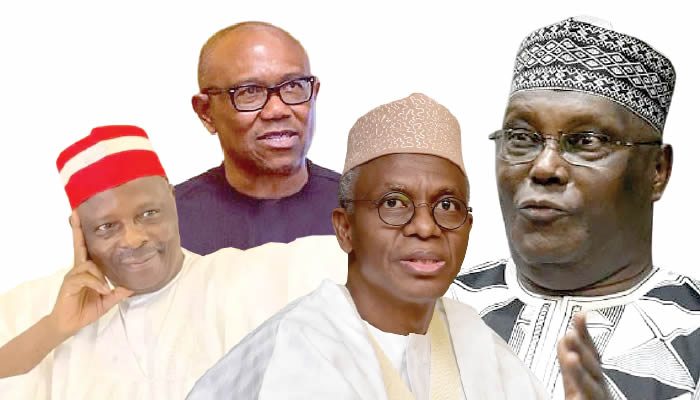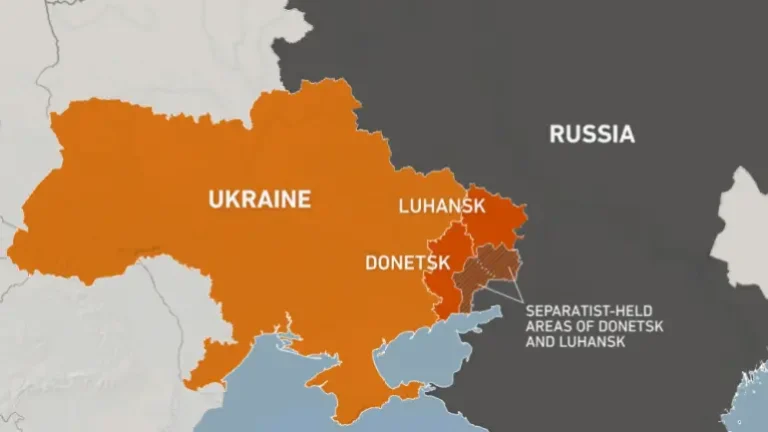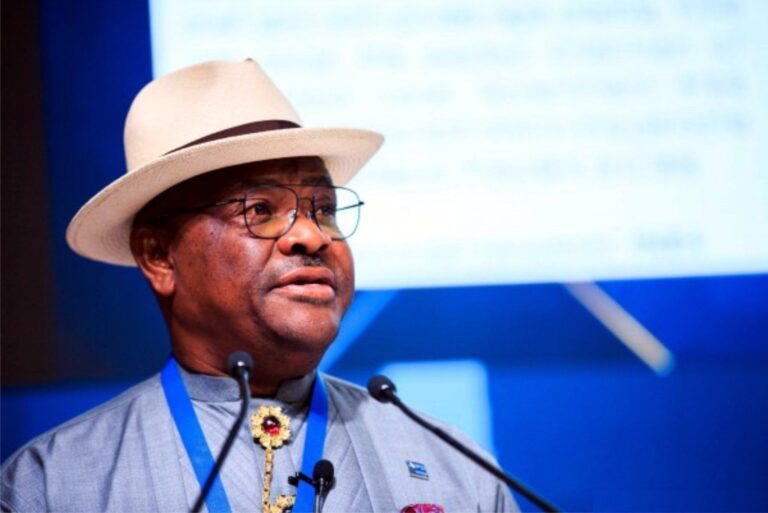
As Nigeria’s 2027 general elections loom, the opposition’s dream of forming a united front to unseat the All Progressives Congress is being rattled by a surge of defections, ISMAEEL UTHMAN writes
The ongoing gale of defections from opposition parties to the ruling All Progressives Congress is rapidly changing the political atmosphere ahead of the 2027 general elections.
Despite widespread complaints of hardship resulting from President Bola Tinubu’s economic reforms, the APC continues to attract key opposition figures and shift the political landscape in its favour. Previously, it was believed that the APC and President Tinubu would struggle to win future elections due to the hardship. Opposition politicians had also leveraged the discontent to stir sentiments and launch campaigns for a change of government in 2027.
According to political analysts, the growing negative perception of the Tinubu administration aided former President Atiku Abubakar and Mallam Nasir El-Rufai’s move to propose a coalition of opposition parties to unseat Tinubu. They calculated that opposition governors would align with the project and strengthen their respective states against the APC.
However, while PDP governors distanced themselves from the group, Delta State Governor, Sheriff Oborevwori, defected to the APC, taking with him the entire PDP structure in the state and the party’s 2023 vice-presidential candidate, Ifeanyi Okowa. Similarly, many members of the PDP, Labour Party, and New Nigeria Peoples Party in the National Assembly also defected to the APC. The wave of defections shook the opposition and the Atiku-led group.
Nonetheless, Atiku, El-Rufai, and the LP’s 2023 presidential candidate, Peter Obi, maintained that the defections will not derail their mission to unseat Tinubu in 2027. El-Rufai, in particular, said the group would not require governors to win elections, stressing that its strategy was centred on direct voter mobilisation.
“We are trying to offer Nigerians a real alternative, something different from what they have seen before. A governor has only one vote. Nigerians have many more votes than one governor or even 36 governors combined,” he said.
Assessing El-Rufai’s claim, analysts note that any coalition seeking to unseat a ruling party must involve political heavyweights, especially governors, because of their political structure and influence over thousands of people.
Sunday PUNCH also observes that the APC dislodged the PDP in 2015 largely due to its solid foundation built on the support of governors, prominent politicians, and a common ideology.
Chasing APC feat
Analysts observe that Atiku’s opposition group bears some similarities to the APC, the party that ousted former President Goodluck Jonathan in the 2015 general elections.
The APC, which was registered as a political party on July 31, 2013, was the result of a merger of the Action Congress of Nigeria, Congress for Progressive Change, All Nigeria Peoples Party, and a faction of the All Progressives Grand Alliance, led by then Imo State Governor, Rochas Okorocha. Later, a breakaway faction of the PDP (the ‘new PDP’) also joined the APC in 2014.
Each of the founding parties of the APC held sway in their respective states and regions. The ACN, a dominant progressive party in the South-West, controlled states with former governors Babatunde Fashola (Lagos), Ibikunle Amosun (Ogun), Abiola Ajimobi (Oyo), Rauf Aregbesola (Osun), Kayode Fayemi (Ekiti), and Adams Oshiomhole (Edo, South-South).
The ANPP had former governors Kashim Shettima (Borno), Ibrahim Gaidam (Yobe), and Abdul’aziz Yari (Zamfara), while the CPC controlled Nasarawa State through Governor Tanko Al-Makura and had seven senators and 34 members of the House of Representatives.
Prominent PDP figures who later joined the APC included former governors Rabiu Kwankwaso (Kano), Aliyu Wamakko (Sokoto), Murtala Nyako (Adamawa), Abdulfatah Ahmed (Kwara), and Rotimi Amaechi (Rivers).
Before their merger, the ACN, ANPP, and CPC were vocal critics of the PDP-led Federal Government and frequently collaborated in opposition.
Political analysts explain that despite Nigeria’s parties often lacking clear ideologies, the ACN, CPC, and ANPP shared similar traits. The ACN promoted progressivism and drew inspiration from Chief Obafemi Awolowo’s legacy, campaigning on the mantra “freedom for all, life more abundant.”
The ANPP, as explained by political scientist and Youth Coalition Against Terrorism founder Imrana Buba, “was a right-wing conservative party with mass appeal due to its pro-poor policies,” while the CPC leaned towards the left-wing, supporting individual liberties, rights, and social welfare for the underprivileged. APGA, founded in 2003 by the late Biafran leader Chukwuemeka Ojukwu, also championed pro-poor policies.
Hurdles before Atiku’s camp
Atiku’s opposition group, however, is not yet a registered political party, and its present and potential leaders come from diverse backgrounds, united only by a shared opposition to Tinubu.
Although there are indications that the coalition may adopt an existing party as its platform for the 2027 election, analysts suggest such a move would likely provoke internal crises.
Already, the Social Democratic Party, previously considered a possible platform, has rejected any coalition deal. The National Secretary of the SDP, Olu Agunloye, confirmed that the party would not enter into a merger or accept external takeovers.
Sources told Sunday PUNCH that the rejection of merger terms by the SDP suspended the defection of other notable politicians from the APC and PDP to the party, as they preferred to wait for the dust to settle before leaving their respective parties.
Meanwhile, some aggrieved members of the APC are reportedly considering alternative platforms.
In a move aimed at offering constructive criticism to guide the coalition, former Kano State Governor, Ibrahim Shekarau, through a statement issued by his spokesperson, Dr Sule Yau, noted, “The coalition of opposition figures is a good development, as seen in their recent meeting under what they call an opposition alliance. However, none of the key figures involved represent their party leadership. Only registered political parties can form an official merger.”
Beyond forming a political party, another major challenge the coalition is facing is the choice of its presidential candidate. While some observers believe Atiku will contest the 2027 election under the coalition, others are touting Peter Obi.
The APC avoided such a crisis during its formation, as it was clear that Muhammadu Buhari would be the presidential candidate, while the vice-presidential slot would go to the South-West.
‘Coalition still on track’
A former Secretary to the Government of the Federation, Babachir Lawal, said the anti-Tinubu group remained firmly on course and had nothing to worry about.
Lawal, one of the group’s leaders, stated that defections, especially by PDP leaders, did not threaten the group’s objectives.
He said, “I said earlier that we are working to form a coalition that does not involve the PDP at all. They are not a factor in our plans, aspirations, or goals. Everyone knows the PDP has an incurable virus. We knew from the beginning they would end up this way.
“However, since the APC is made up of Nigerians, and we are Nigerians, we understand ourselves, our methodology, and likely strategies. So, we are not concerned about the defections. Every Nigerian has the right to join any political party of their choice. We don’t begrudge them for going to the APC. That’s their choice. But we are not scared or bothered. None of them has ever been considered a factor in our plans.
“In 2023, Okowa was the PDP vice-presidential candidate, yet Peter Obi won his state. So, what value are they subtracting from the coalition if people who couldn’t deliver their states decide to move to another party? I have no concerns about who joins the coalition and who doesn’t. We know the principal actors. Those with the capacity to defeat the APC in 2027 are the ones driving our project. The masses are with us.”
A political analyst and Convener of the Country First Movement, Prof. Chris Nwokobia, said it was too early to conclude that the Atiiku coalition was not on the right track or failing to take necessary steps.
He expressed optimism that the group would be strong enough to challenge the APC and wrestle power in 2027.
Nwokobia said, “I think it’s too early to conclude the coalition’s direction. Engagements are ongoing; people are still talking. Nigerians and the opposition will come together to form a credible and formidable front against the APC. I’m confident that will happen sooner rather than later, because nobody will sit back and allow a government that is consistently failing to coast to victory in 2027. There will be a strong coalition capable of challenging the APC.”
On calls for the coalition to form a political party, Nwokobia added, “We cannot rule out the possibility that the coalition will form or merge into a political party capable of taking power from the APC. I believe that the actors in the opposition understand the urgency of the moment and the need to rescue Nigeria from the APC. They understand the challenge ahead, to coalesce and form a strong platform for the 2027 elections.”
However, a former National Secretary of the CPC, Buba Galadima, dismissed the coalition’s prospects, describing it as a gathering of ambitious individuals unlikely to benefit Nigerians.
“These are just a few individuals who have come together to form a group they hope will seize political power. Atiku is bringing people from the PDP, while El-Rufai brought himself from the APC. As far as I’m concerned, they are the only people in this so-called coalition. We’ve seen this before, and it didn’t help Nigerians. We’re not ready to tread that path again. So, I don’t think anyone should lose sleep over the Atiku and El-Rufai coalition,” he said.
Advising the coalition in an interview with Sunday PUNCH, a former president of the International Political Science Association, Prof. Adele Jinadu, said putting public interest above personal interest would bring sanity to the polity.
“Once defections start and the ruling party sets out to decapitate the opposition, the development can, in turn, set off a chain of reactions that may engulf not only the political class but also the country as a whole in a deluge of political crises that does nobody any good.
“It is for the rest of us, the citizens, to rescue the country from the politicians, and the politicians from themselves. This is the lesson of our electoral history and the point made by Machiavelli and other political theorists in emphasising the republican virtue of placing the public interest above self-interest when the public interest is under attack by those who pursue politics as a self-interested vocation,” Jinadu stated
PUNCH.




